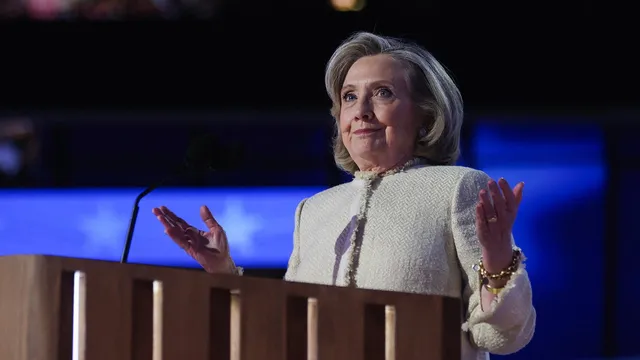
Hillary Clinton sparks controversy over disinformation arrest suggestion
2024-09-21 07:00- Hillary Clinton suggested on MSNBC that Americans spreading disinformation should face legal consequences, including arrest.
- Constitutional scholar Jonathan Turley criticized her remarks, linking them to a broader anti-free speech movement.
- The controversy highlights the ongoing debate about balancing the fight against disinformation with the protection of free speech rights.
Express your sentiment!
Insights
Hillary Clinton recently faced backlash for suggesting that Americans who share disinformation should face legal consequences, including potential arrest. During an appearance on MSNBC, she emphasized the need for accountability, drawing parallels to the indictments of Russians involved in election interference. Clinton's comments have been interpreted as part of a broader movement advocating for censorship, which critics argue undermines free speech rights. Constitutional scholar Jonathan Turley condemned her remarks, labeling them as part of an anti-free speech agenda. Turley highlighted the irony of Clinton's stance, noting her campaign's past involvement with disinformation, particularly regarding the Steele dossier. He questioned whether her own actions would warrant similar legal scrutiny under her proposed standards. This situation reflects a growing trend where political figures seek to impose restrictions on speech, raising concerns about the implications for democratic discourse. The controversy has sparked a wider debate about the balance between combating disinformation and protecting free speech. Critics argue that such measures could lead to a chilling effect on public discourse, where individuals may hesitate to express their views for fear of legal repercussions. This tension is evident in the ongoing discussions surrounding digital censorship and the responsibilities of social media platforms. As the conversation evolves, it remains crucial to consider the potential consequences of enforcing stricter regulations on speech. The implications of Clinton's suggestions could resonate beyond the immediate context, influencing future policies and the public's perception of free expression in the digital age.
Contexts
Hillary Clinton recently sparked controversy by suggesting that criminal charges should be considered for Americans engaging in speech resembling Russian propaganda. This statement aligns with recent actions taken by the Biden administration against foreign entities attempting to influence the upcoming 2024 presidential election. Clinton emphasized the need to protect American democracy by identifying connections between such speech and foreign adversaries. In her public appearances, Clinton has been vocal about the political landscape, particularly criticizing Donald Trump's leadership and his response to the January 6 Capitol riot. She expressed concern over Trump's influence and the lack of accountability for his actions, suggesting that he enjoyed the chaos of that day. Clinton has also defended Vice President Kamala Harris against media scrutiny, highlighting a perceived double standard in the treatment of female candidates compared to their male counterparts. She believes that Harris's policies are often misrepresented and that the media's coverage is unequal. As the political climate evolves, Clinton's reflections on her experiences and her support for Harris signal her ongoing engagement in the Democratic Party's future, especially following Joe Biden's withdrawal from the 2024 race, which she described as a patriotic act.